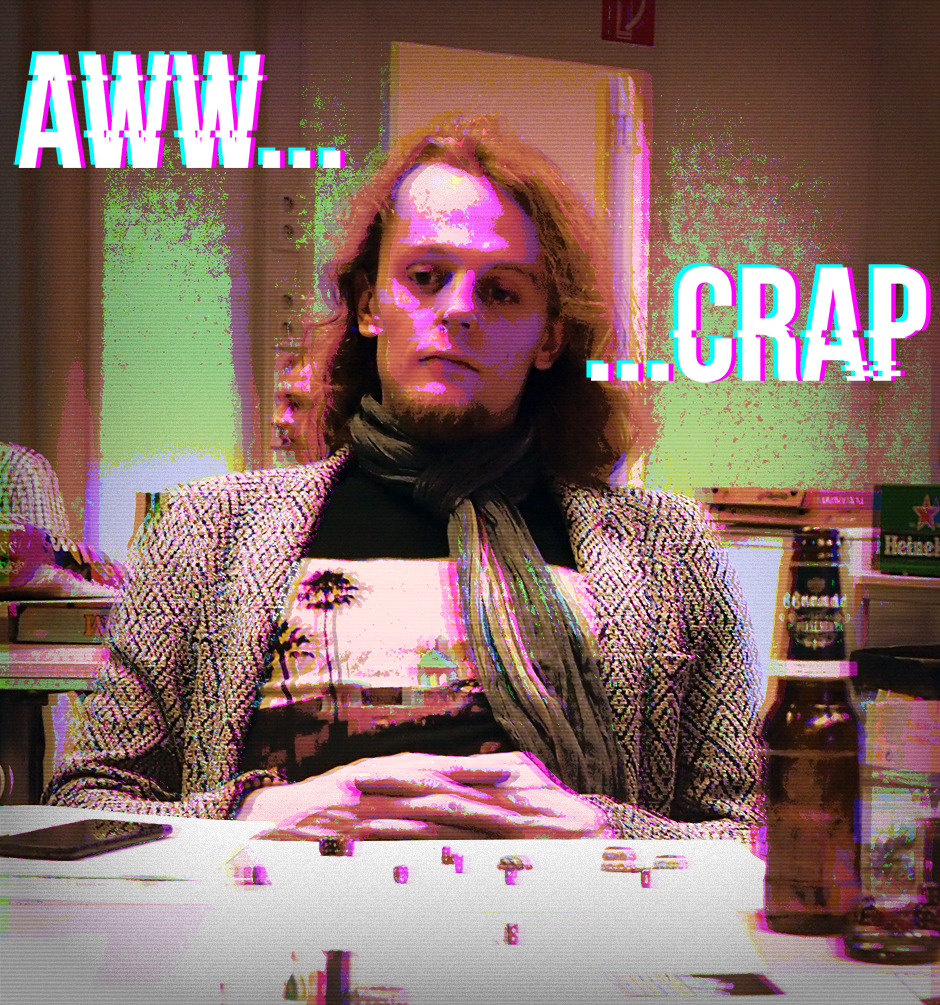Current post: Trial and Error; Our First Draft’s Post Mortem

We forgot that the game had to be fun!
You know that moment when you put loads of work and effort into something, and after a while you think “Well, this sucks”? That happened! But before we get into that, let’s start at the beginning.
In August 2016 we officially started working on the game system of The Coalition. We spent the first month thinking about the core of the game; an Attribute and Skill system with d6s. We took our inspiration from games we knew and played, mainly D&D 3.5e and White Wolf’s Vampire the Masquerade. Our concept was to create a system with the freedom and focus on roleplay of the Vampire system, while being as extensive and versatile as D&D 3.5. And to add to that, we wanted to make our system as realistic and scientifically accurate as possible. Little did we know that that broad focus would be the downfall.
At first this all went quite well. After about a month the first draft of the core was done, and we started working on supplemental rules. How does combat work, how do we want to incorporate social gameplay, what kind of other systems do we need, etc. For every situation we could come up with, that a player would experience, we devised a new, scientifically thought out set of rules.
We built system upon system, layer upon layer, because every time we finished a certain aspect we discovered some specific situations the system didn’t cover. We had countless discussions on whether we needed to focus on ease of play or on realism, since making the system more realistic almost always meant adding more rules. What worked for certain types of guns, like straight shooting rifles, wouldn’t work for others, like bouncing grenade launchers. This became most apparent when we got to the vehicles. What worked in an atmosphere wouldn’t work in space or on land or on water. We made different movement rules for each type of vehicle, resulting in three pages of rulesets dedicated solely to making the vehicles work. In that, we realized that it was no longer fun for the player. Every time they would have wanted to do anything, players would have had to look up the ruleset for those specific actions, figure out if the vehicle they were using would allow that, and so on and so forth. This problem turned out to extend to almost every aspect of our system.
And don’t get us wrong, the system we had worked, on a technical level. We had tested it with our group of loyal alpha testers (shout out to you, you know who you are!) and we got more and more positive response each new testing round. But, most of these were experienced roleplayers, having played with various different systems before. We wanted a system that anyone could play.
In hindsight, several things went wrong. First off, we learned that none of us had any real idea what our concept was. We all had different opinions about what kind of system our game should have, and instead of settling this beforehand, we ended up with inconsistencies throughout the system. Secondly, we spent too much time changing things in our game on a detailed level, without realizing the effects on our larger overarching system, losing sight of our goals in the process. Thirdly, we forgot that the game had to be fun, beyond scientific. We want our universe to feel real, and we thought that our game should therefore also feel real. And that was a very wrong assumption of ours. The universe can and should feel real but our game ought to be fun, first and foremost.
That’s when we said to each other: “Well, this sucks”. And after a day or two of deliberation, we decided to start at the beginning by asking ourselves: “What kind of game do we want to make?” Our answer?
A Tabletop RPG where the focus lies on ease of play, with lots of versatility in character building and with the focus on narrative freedom.
At this point, we’ve been working on this new system for about a month, and we feel we have a solid core concept now. All the things a player would want to do are covered within a base concept, and all the versatility of the game lies in the customization of your character. You’ll never get an item that requires a whole new set of actions to be checked, or a vehicle with a slew of specific movements. Instead, the player says what they want to do, which will fall within a category of our core system, then they have to roll against a difficulty or opposed roll and that’s that. All our items and perks and weapons are purely supplemental to those rolls.
We feel this system is much clearer and allows us much more room for expansion. And it has been an immense and great learning experience for us. Developing a new role playing system turned out to be a lot harder than we thought, but we love and welcome the journey!